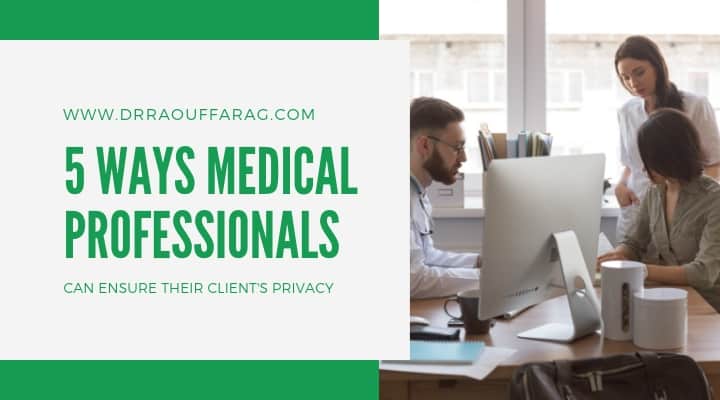While there are several benefits to working in healthcare, there is one aspect that other industries don’t have to worry about. That means violating the HIPAA Privacy Rule. When one staff member’s actions result in a HIPAA violation, it jeopardizes the entire practice. Here are some ways that you and your staff can maintain HIPAA compliance.

Keep Your Staff Educated
The first thing you should do is make sure your staff is educated and informed on the PCI HIPAA BBB policy. You should take the time to educate and train employee on HIPAA regulations and inform them when any changes or new information has taken place. Your staff should be aware of the penalties they’ll face if they’re not compliant. Hold regular in-office meetings and training sessions to train your employees everything they need to know about the HIPAA policy and private regulations to answer questions or concerns.
The meetings and training sessions should be conducted by you or your local HIPAA privacy office. If your office uses HIPAA security software, these programs should also implement regular training sessions and seminars. Take the time to make sure every member of your staff is knowledgeable on the HIPAA policy and privacy standards to ensure your practice is HIPAA compliant. While training and education takes time, it’s one of the best things you can do to ensure your patients’ privacy.
Reduce Use of Mobile Devices
One of the biggest HIPAA violations is a result of using mobile devices for storing patient healthcare information. That information could become lost or stolen. It’s important for healthcare practices and their staff to protect their mobile devices and keep them away from prying eyes.
In the event that an employee loses their laptop or tablet, or leaves it around and it gets stolen, your healthcare practice will be penalized for that mistake. Remind each of your employees to keep in mind where their mobile devices are at all times and to power them off when they’re not in use.
Use Encryptions and Firewalls
The next thing your practice can do is include the use of encryptions and firewalls. There are plenty of software programs and technologies that allow you to remotely lock or wipe the information. This should become your backup plan in case one of your devices gets lost or stolen. Remind your staff of the importance of keeping their devices on them and enabling encryptions and firewalls.
While accidents happen, it’s important for you and your staff to remain HIPAA compliant. Make sure that encryptions and firewalls are up-to-date with user authentication. Including these security measures on each of your devices can help secure patient information.
Use Social Media Wisely
Don’t forget to stress to your staff how important it is to use social media wisely. The way that healthcare practitioners communicate with each other has evolved. People spend most of their time posting on Facebook, Instagram, and Twitter. Social media has also increased the risk for healthcare employees to violate HIPAA regulations.
It’s important to have your staff and practice remain HIPAA compliant by establishing rules about not posting any text or photos about what goes on in the practice on social media or their personal blog. Your practice could get fined or penalized for posting sensitive information on social media. It doesn’t matter if an employee was only sharing a small piece of information that doesn’t name names. Both employees and practices must be careful when it comes to using social media.
Keep Patient Information Private
One way your practice and staff could violate HIPAA laws is keeping patient information in the public’s eye. You don’t want to make this careless yet costly mistake. Keep all patient files closed, don’t keep appointment calendars open in plain sight, and keep computer screens and mobile devices hidden from patients and other visitors. Inform your staff to be mindful when accessing patient information and if they notice something in public view to take care of the issue as soon as possible.
In order for your entire practice to remain HIPAA client, each member of your staff must also be HIPAA compliant. It’s imperative to educate, inform, and train your staff on the HIPAA regulations and the consequences from not being non-compliant. Remind them to be smart when it comes to using social media and mobile devices. You can work together to reduce HIPAA violations.
